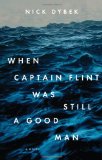 What does freedom look like in our personal lives? Freedom to choose a career path, freedom to live the kind of life one chooses. What does it look like in a working-class town where pretty much everyone is a commercial fisherman? And if that way of life is threatened, how drastic can one be in doing all that is necessary to protect it, to protect a whole town?
What does freedom look like in our personal lives? Freedom to choose a career path, freedom to live the kind of life one chooses. What does it look like in a working-class town where pretty much everyone is a commercial fisherman? And if that way of life is threatened, how drastic can one be in doing all that is necessary to protect it, to protect a whole town?
These are weighty questions, but Cal isn’t thinking about any of them. He’s just a high school kid, used to bleak winters where the rain lashes the coast for weeks on end, living alone with his mom while his dad is out on the high seas, catching king crab off Alaska. It’s a hard life, with the men gone for half the year, returning as strangers to their families, accustomed to the long silences of the sea. They live in a town called Loyalty Island on the Olympic Peninsula, where the “libraries were always stocked with books that were checked in and movies that were checked out.” (p. 4) Cal’s mother isn’t from Loyalty Island, but from Santa Cruz. His father built her a studio in their basement and lined it with records, and she spends hours on end down there alone, listening to music. It is understood that Cal may not grow up to be a commercial fisherman–that is the agreement between his parents.
The town is practically owned by one family, the Gaunts. Their arrival is the stuff of myth, repeated at an annual dinner held each September before the start of the season. They own the fishing fleet, they arrange the licensing and contracts. But the head of the family, John Gaunt, is dying, suddenly. And that will leave the town’s livelihood in the hands of his only son Richard, a spoiled arrogant young man who, most importantly, has never been fishing in Alaska, and who is therefore an outsider and not to be trusted. And at the annual dinner, Richard announces he is in fact going to sell everything to the Japanese, leaving the town destitute. But, next day, it’s reported that he’s changed his mind and is instead going to go to Alaska on the boats with the fleet. Meanwhile, Cal’s pregnant mother goes to Santa Cruz for the winter, and Cal is shipped off to stay with his friend Jamie. He’s not even supposed to go back to his own house. But when he does, he hears music coming from the vents of the downstairs studio. I’m not going to tell you who is there, just that it’s not who I thought it was.
When Cal and Jamie made a dark discovery, they have a decision to make—one that will have far-reaching consequences, and one that shatters their world.
When Captain Flint Was Still a Good Man is an excellent book. It’s extremely well-written—author Nick Dybek has perfectly captured the elusive, watery light of a dreary Northwest winter, the beauty and loneliness of the sea. Obviously there are elements of Shakespeare’s Richard II at play here—the names are a dead giveaway—and former lit students will find much to discuss here. Like Richard II, When Captain Flint Was Still a Good Man
is a tragedy; like a Shakespearean tragedy, it teaches us something about our world. Cal learns that freedom from expectations and the past comes at a price, and that protection of a way of life may in the end cost too much. I highly, highly recommend this book.
Elizabeth knows all about that rain for hours on end, even though she has never fished commercially. Read more at her blog Planet Nomad.